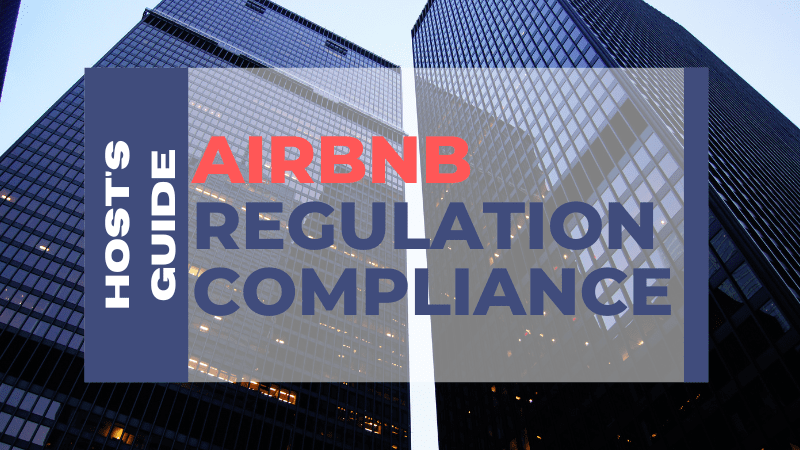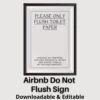Welcome to the comprehensive guide on understanding and mastering “Airbnb host responsibilities and duties.” In the dynamic world of Airbnb hosting, recognizing and fulfilling your responsibilities is crucial for ensuring guest satisfaction, maintaining a reputable listing, and ultimately achieving success in the competitive short-term rental market.
Hosting on Airbnb goes beyond providing a space for guests; it involves creating memorable experiences, ensuring safety and comfort, and managing your business with professionalism and care.
As you embark on or continue your hosting journey, this guide aims to provide you with a deep understanding of the various responsibilities and duties that come with being an Airbnb host.
By adhering to these standards, you can elevate your hosting game, garner positive reviews, and build a thriving Airbnb business.
For comprehensive information and official guidelines, Airbnb offers a wealth of resources to help hosts understand their roles and responsibilities. Start by exploring Airbnb’s Basic Requirements for Hosts to get an overview of what’s expected from hosts.
Additionally, familiarize yourself with the Hosting Standards which cover aspects of safety, communication, and reliability—key areas that form the foundation of successful hosting.
By integrating these responsibilities and duties into your hosting practice, you’ll not only create a safe and welcoming environment for your guests but also establish a strong and profitable presence in the Airbnb community. Let’s dive into the specifics of what it takes to be an exemplary Airbnb host.
II. The Essence of Airbnb Hosting
Understanding the “Airbnb host responsibilities and duties” is the cornerstone of successful hosting. It entails much more than providing a space for guests; it’s about creating a welcoming environment, ensuring a seamless experience, and managing your property with the utmost care and professionalism.
Defining Airbnb Hosting: Airbnb hosting is a multifaceted role that requires you to wear many hats. At its core, it involves offering a clean, comfortable, and safe space for guests but extends to being an ambassador of your local area, a customer service expert, and a savvy business operator. You’re responsible for the entire guest experience, from the moment they browse your listing to the time they check out and review their stay.
Impact of Responsible Hosting: Being a responsible host has a profound impact on the guests’ experience and your success. It leads to higher guest satisfaction, better reviews, and more bookings. On a larger scale, it contributes to the overall trust and quality of the Airbnb community, ensuring that guests continue to see Airbnb as a reliable and preferable option for accommodation.
For a deeper understanding of what Airbnb expects from its hosts, refer to the Host Responsibilities page on the Airbnb Help Center. This resource outlines the fundamental duties every host should fulfill, emphasizing the importance of reliability, safety, and guest satisfaction.
Additionally, consider visiting the Airbnb Community Center, a platform where hosts around the world share their experiences, tips, and best practices. Engaging with this community can provide valuable insights and help you keep up with the latest trends and standards in Airbnb hosting.
Embracing the full spectrum of “Airbnb host responsibilities and duties” is essential for creating outstanding guest experiences and building a successful rental business. By committing to continuous learning and improvement, you can ensure that your hosting practices not only meet but exceed the expectations of guests and contribute positively to the Airbnb community. Let’s explore the core responsibilities that every host should master.
III. Mastering Core Airbnb Host Responsibilities
As an Airbnb host, mastering the core responsibilities is essential for ensuring guest satisfaction, maintaining a high-quality listing, and complying with legal and community standards. This section delves into the key areas of listing creation, legal compliance, and guest service, which are integral to upholding the “Airbnb host responsibilities and duties.”
Listing Creation and Management
Creating a compelling and accurate listing is the first step in attracting guests to your property. It involves:
- Descriptive and Honest Content: Write a detailed description that highlights the unique features of your space and sets realistic expectations for potential guests.
- Quality Photography: Include high-quality photos that showcase your property’s best features and layout.
- Competitive Pricing: Set a price that reflects your offering’s value, considering factors like location, amenities, and local market rates.
For guidance on creating an appealing listing, visit Airbnb’s Create a Listing page, which provides tips and best practices for hosts.
Legal Compliance and Safety
Ensuring your property meets legal, safety, and regulatory requirements is a critical aspect of hosting:
- Local Laws and Regulations: Familiarize yourself with local zoning laws, permits, and health and safety regulations that apply to short-term rentals.
- Safety Equipment and Information: Equip your property with necessary safety features like smoke and carbon monoxide detectors, fire extinguishers, and a first-aid kit. Provide guests with safety information, including emergency contact numbers and evacuation routes.
Airbnb’s Responsible Hosting page offers a wealth of information on legal requirements, safety guidelines, and more to help you navigate these aspects of hosting.
Providing Excellent Customer Service
Exceptional guest service is at the heart of the Airbnb experience:
- Effective Communication: Maintain clear, responsive communication with guests before, during, and after their stay. Provide all necessary information, answer questions, and resolve issues promptly.
- Guest Support: Offer assistance and local recommendations to enhance guests’ stay. Be available or have a plan in place for addressing any concerns or emergencies that may arise.
Airbnb’s Hospitality Standards outline the key aspects of providing excellent service and creating memorable stays for guests.
By mastering these core responsibilities, you set a solid foundation for your hosting business, ensuring that every guest enjoys a safe, comfortable, and memorable stay. Upholding the “Airbnb host responsibilities and duties” not only benefits your guests but also enhances your reputation and success as a host. As we move forward, we’ll explore the detailed duties involved in enhancing the guest experience.
IV. Detailed Duties for Enhanced Guest Experience
Creating an exceptional guest experience is a critical part of “Airbnb host responsibilities and duties.” It involves meticulous attention to detail in preparing your space, streamlining check-in and check-out processes, and actively seeking and responding to feedback. This section will guide you through these duties, which are pivotal in ensuring your guests have a memorable and comfortable stay.
Preparing Your Airbnb
Ensuring your property is impeccably clean, well-maintained, and thoughtfully prepared is essential:
- Cleaning and Maintenance: Implement a rigorous cleaning protocol, especially focusing on high-touch areas. Regularly inspect and maintain the property to ensure everything is in working order.
- Amenities and Comfort: Stock your space with necessary amenities such as toiletries, linens, and basic kitchen supplies. Consider additional comforts like fast Wi-Fi, entertainment options, or local treats that might enhance the guest experience.
Airbnb provides a Cleaning Checklist that hosts can use to ensure their property meets high standards of hygiene and comfort.
Streamlining Check-In and Check-Out
A smooth check-in and check-out process is vital for a stress-free guest experience:
- Clear Instructions: Provide detailed instructions for finding and accessing your property, including any codes or keys needed for entry.
- Flexible Options: Where possible, offer flexible check-in and check-out times and consider self-check-in options for guests’ convenience.
Visit Airbnb’s guide on Creating a Smooth Check-In Experience for tips on making these processes as seamless as possible.
Feedback and Continuous Improvement
Actively seeking and responding to guest feedback is crucial in continuously improving your offering:
- Encouraging Reviews: Prompt guests to leave a review after their stay, providing them with an opportunity to share their experience and suggestions.
- Responding to Feedback: Address any criticisms constructively and make necessary adjustments to your property or hosting style based on guests’ suggestions.
The Airbnb Reviews page explains the review process and offers advice on how to encourage and respond to feedback.
By focusing on these detailed duties, you enhance the overall guest experience, leading to higher satisfaction, better reviews, and more bookings. Every aspect of your property and service should reflect your commitment to excellence in hosting, aligning with the overarching “Airbnb host responsibilities and duties.” As you implement these practices, you’ll not only provide a superior stay for your guests but also solidify your reputation as a top-tier Airbnb host.
V. Financial Management and Record Keeping
A crucial aspect of “Airbnb host responsibilities and duties” involves effective financial management and meticulous record-keeping. This ensures not only the profitability of your hosting business but also compliance with legal and tax regulations.
Understanding Airbnb’s Fee Structure and Pricing Strategy
- Fee Structure: Familiarize yourself with how Airbnb’s fee system works, including service fees and any additional charges that might apply to you or your guests. This will help you set competitive and profitable pricing.
- Dynamic Pricing: Consider using dynamic pricing strategies to adjust your rates based on demand, season, and special events in your area. This can maximize your earnings and occupancy rates.
Keeping Records for Tax Purposes and Performance Tracking
- Expense Tracking: Keep detailed records of all expenses related to your Airbnb, including utilities, supplies, repairs, and improvements. This will not only help in managing your budget but also in claiming deductions when tax time comes.
- Income Tracking: Document all your rental income and understand the tax implications. Depending on your location, you might need to pay income tax on your Airbnb earnings.
- Guest Records: Maintain a record of all bookings, communications with guests, and any incidents that occur. This information can be valuable for resolving disputes, refining your hosting strategy, and understanding your business performance.
Leveraging Airbnb Tools and Resources
Airbnb offers various tools and resources to help hosts with financial management and record-keeping:
- Analytics Dashboard: Use Airbnb’s dashboard to track your earnings, booking rates, and guest reviews. This can provide insights into your performance and areas for improvement.
- Hosting Resources: Explore Airbnb’s hosting resources for tips on financial management, including understanding taxes, setting prices, and saving for repairs and improvements.
By staying on top of your financial management and record-keeping duties, you ensure the long-term sustainability and success of your Airbnb business. This not only helps in optimizing your earnings but also in maintaining a reputable and trustworthy listing. As you continue to develop your hosting skills, remember that effective financial management is a cornerstone of professional and responsible Airbnb hosting.
VI. Building a Culture of Safety
Creating a safe and secure environment is a fundamental aspect of “Airbnb host responsibilities and duties.” A culture of safety involves being proactive about potential risks, educating guests on safety practices, and continuously improving based on feedback and advancements in safety standards. Here’s how you can build and maintain a culture of safety as an Airbnb host:
Educating Guests on Safety Practices:
- Welcome Guide: Include a section in your welcome guide dedicated to safety. Cover how to use appliances correctly, the location of fire extinguishers, emergency exit routes, and any specific risks associated with your property or the local area.
- In-Person Walkthrough: If possible, provide a brief safety walkthrough upon guest arrival, pointing out where they can find safety equipment and how to operate security systems.
Encouraging a Community Approach:
- Neighborhood Watch: Get involved with or initiate a neighborhood watch program. Inform guests about it and how they can ensure their own safety and the security of the property during their stay.
- Local Partnerships: Establish relationships with local health and safety organizations. Provide guests with contacts for local emergency services, hospitals, and other relevant local safety information.
Continuously Updating and Improving Safety Measures:
- Stay Informed: Regularly check for updates on safety regulations and new safety technology that could be implemented in your property.
- Feedback Loop: Actively seek feedback from guests regarding the safety of your property. Address any concerns raised and make improvements where necessary.
Highlighting Safety in Your Listing:
- Safety Features: Clearly list all the safety features of your property in your Airbnb listing. This not only informs guests but also highlights your commitment to their safety.
- Certifications and Verifications: If you’ve completed any safety-related courses or if your property has been certified in any way for safety (like a fire safety inspection), include this information in your listing.
Supporting Special Needs and Accessibility:
- Accessibility Features: If your property is equipped to accommodate guests with disabilities, ensure that all safety features are accessible and clearly documented.
- Childproofing: If your space is family-friendly, provide information on how you’ve childproofed your property or offer tips on how they can keep their children safe during their stay.
Building a culture of safety is not just about meeting the minimum requirements; it’s about going above and beyond to ensure that every guest feels secure and protected. By embedding safety into every aspect of your hosting, from property setup to guest communication, you’re not only enhancing the guest experience but also setting a standard for responsible and conscientious hosting.
VII. Legal Considerations and Compliance
As an Airbnb host, one of the most crucial “Airbnb host responsibilities and duties” is understanding and complying with the legal requirements of hosting. This includes local laws, regulations, and Airbnb’s own policies. Ensuring legal compliance not only protects you and your guests but also contributes to the integrity and trustworthiness of the Airbnb platform. Here’s how you can navigate the legal landscape of Airbnb hosting:
Understanding Local Regulations
- Zoning Laws and Permits: Familiarize yourself with local zoning laws to ensure that your property can be legally rented out. Obtain any necessary permits or licenses required by your city or town.
- Safety Regulations: Comply with local health and safety regulations, including occupancy limits, safety equipment requirements, and health standards.
- Tax Obligations: Understand and fulfill your tax obligations, including collecting occupancy taxes if required in your area.
Insurance Coverage
- Liability Insurance: Ensure that you have adequate liability insurance to protect against potential claims or lawsuits from guests.
- Property Insurance: Make sure your property insurance covers short-term rentals; some policies may not include this type of hosting activity.
Creating a Safe and Legal Listing
- Accurate Descriptions: Ensure that your listing accurately reflects your property and includes any potential safety risks or limitations.
- Privacy and Data Protection: If you use surveillance devices or collect personal information from guests, be transparent and ensure you’re complying with privacy laws and Airbnb’s policies.
Staying Updated and Informed
- Legal Resources: Stay informed about changes in laws or regulations that could affect your hosting. Consider consulting with a local attorney or joining host associations for up-to-date information.
- Airbnb Updates: Regularly check Airbnb’s updates and policy changes that may impact how you host.
Documenting Safety Measures and Compliance
- Records: Keep records of all safety inspections, repairs, and improvements made to your property. Document any training or certifications you complete related to property safety.
- Guest Agreements: Use rental agreements or house rules to clearly communicate the terms of stay, including safety rules and the responsibilities of guests.
By proactively addressing these legal considerations and ensuring compliance, you are not only safeguarding your business but also enhancing the guest experience by providing a secure and legally sound environment. Remember, as an Airbnb host, your commitment to legality and safety reflects on the entire community and contributes to the ongoing success and sustainability of the Airbnb platform.

VIII. Conclusion
Mastering “Airbnb host responsibilities and duties” is crucial for anyone looking to provide exceptional hospitality and create memorable guest experiences. Throughout this guide, we’ve explored the various aspects of Airbnb hosting, from creating and managing listings, ensuring legal compliance, and providing excellent customer service, to enhancing guest experiences, managing finances, building a culture of safety, and understanding legal requirements.
Recap of Key Safety Strategies:
- Understanding the Role of an Airbnb Host: Recognizing the multifaceted nature of hosting and the impact it has on guests and the community.
- Mastering Core Airbnb Host Responsibilities: Focusing on creating compelling listings, maintaining legal and safety standards, and delivering exceptional guest service.
- Detailed Duties for Enhanced Guest Experience: Ensuring property preparation, smooth check-ins and check-outs, and actively seeking and responding to feedback.
- Financial Management and Record Keeping: Understanding Airbnb’s fee structure, pricing strategy, and the importance of keeping detailed financial and guest records.
- Building a Culture of Safety: Implementing safety measures, educating guests, and continuously improving the safety standards of your property.
- Legal Considerations and Compliance: Staying informed about and adhering to local laws and regulations, ensuring adequate insurance coverage, and keeping accurate records.
As an Airbnb host, your journey is one of continuous learning and adaptation. The landscape of short-term rentals is ever-evolving, with new challenges and opportunities arising regularly. By staying informed, engaging with the community, and prioritizing the satisfaction and safety of your guests, you can ensure a rewarding and successful hosting experience.
Encouragement for Continuous Safety Improvement: Stay committed to improving your hosting practices. Regularly seek feedback, attend workshops or webinars, and engage with other hosts to learn from their experiences. The most successful hosts are those who view each guest and each stay as an opportunity to learn and improve.
Engaging with the Airbnb Community: Join forums, participate in local host meetups, and connect with other hosts online to share insights and stay updated on best practices. The Airbnb community is a rich resource for support, inspiration, and advice.
In conclusion, embracing the full scope of “Airbnb host responsibilities and duties” is not just about adhering to standards — it’s about exceeding them and creating an environment where guests feel valued, safe, and eager to return. Your efforts and dedication to hosting excellence not only benefit your guests but also contribute to the strength and reputation of the entire Airbnb community. Here’s to your success and continuous growth as an outstanding Airbnb host!











